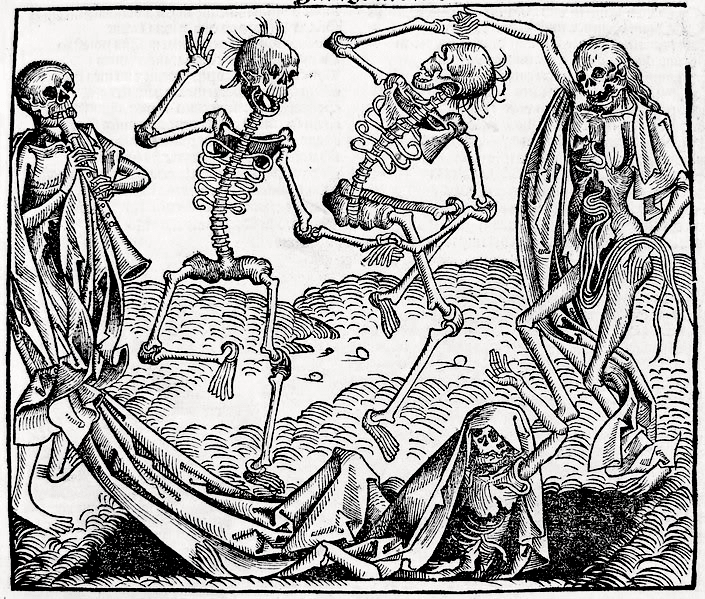London burial site may be linked to Black Plague
This image is the Dance of Death in the German printed edition, folio CCLXI recto from Hartman Schedel’s Chronicle of the World (Nuremberg, 1493) thought to be created by Michael Wolgemut (b. 1434, Nürnberg, d. 1519, Nürnberg). There was also a Latin printed edition of the same year. It seems not to be by Hans Holbein the Younger, as often stated. He was not alive at the time of its publication in 1493.
A burial pit discovered in London could hold as many as 50,000 victims of the bubonic plague epidemic that swept 14th century England, casting more light on the world-changing sickness that dramatically altered European life.
Archeologists stumbled upon 13 skeletons laid out in rows while working on a railway excavation project in central London, wrote Reuters, a $23 billion CrossRail transportation project.
"At this early stage, the depth of burials, the pottery found with the skeletons and the way the skeletons have been set out, all point towards this being part of the 14th century emergency burial ground," lead Crossrail archeologist Jay Carver told Reuters.
Scientists hope to analyze DNA from the bodies to gain more insight into the Black Death and the spread of the deadly bacterium that killed so many, the BBC reported.
The bodies are located in Charterhouse Square, an area that was once located outside London's city walls and widely referred to as "no man's land," according to BBC.
Read more from GlobalPost: A plague of locusts descends on Egypt
There's no chance the bodies could re-ignite another epidemic, Nick Elsden of the Museum of London Archeology said in the Evening Standard.
"It's not something that stays in the soil. You have to actually meet someone who has it in order to catch it," Elsden said.
It's estimated that the Black Death began in Europe in 1347, a relentless rampage that ended in the deaths of about 20 million Europeans, or about one-third of the entire continent.
Bubonic plague is a deadly zoonotic disease that's spread by fleas, and is often carried by rats. Bubonic plague sufferers experience painful lymph gland swelling (known as bubos), seizures, and muscle pain, among other symptoms, according to the US National Library of Medicine.
Below is a BBC documentary on the so-called "medieval apocalypse."
Every day, reporters and producers at The World are hard at work bringing you human-centered news from across the globe. But we can’t do it without you. We need your support to ensure we can continue this work for another year.
Make a gift today, and you’ll help us unlock a matching gift of $67,000!
